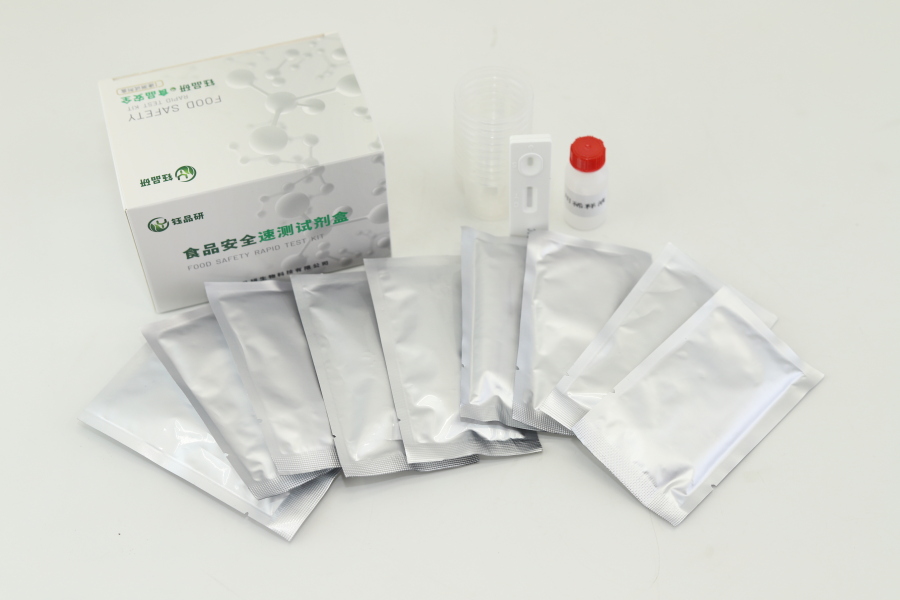In today's increasingly important food safety, rapid and accurate detection of pesticide residues in food is an important part of protecting public health. Fenthion, as a common organophosphorus pesticide, is often used in agricultural production to control pests, but if its residues exceed the standard, it will pose a potential threat to human health. Therefore, the technology and products for rapid detection of fenthion residues have attracted much attention, and the Fenthion Colloidal Gold Rapid Detection Card is one of the "leaders".
So, what exactly is the Fenthion Colloidal Gold Rapid Detection Card? Simply put, it is a rapid detection product developed based on colloidal gold immunochromatography technology, which is mainly used for qualitative or semi-quantitative detection of fenthion residues in foods (such as vegetables, fruits, grains, tea, etc.). The core principle is to use the antigen-antibody specific binding reaction, by binding the colloidal gold-labeled antibody to the fenthion in the sample, a color line is formed on the test strip, so as to determine whether there is fenthion residue in the sample.
This detection card is very convenient to use, no complicated equipment is required, and ordinary operators can get started after simple training. During testing, only a small amount of sample (such as shredded food tissue, soaking liquid, etc.) needs to be taken, the extract and sample dilution are added according to the instructions, and then the detection card is inserted into the reaction tube, and the results are observed after a period of time (usually 10-15 minutes). If two color lines appear on the test strip, it indicates that the fenthion residue in the sample does not exceed the standard; if only one control line appears, there may be residues, which need to be further confirmed by other methods.
Compared with traditional detection methods, the fenthion colloidal gold rapid detection card has significant advantages: First, the detection speed is fast, and the whole process takes only ten minutes from sample processing to result interpretation, which can meet the needs of on-site rapid screening; second, the sensitivity is high, and very low concentrations of fenthion residue can be detected (usually reaching the national standard limit); third, the operation is simple, without the need for a professional laboratory environment and complex operation steps; fourth, the cost is low, and it is suitable for large-scale promotion and application.
In practical applications, the fenthion colloidal gold rapid detection card is widely used in food production enterprises for raw material acceptance, processing process control, field rapid screening in the agricultural sector, market sampling inspection by market supervision departments and other scenarios. It can help relevant units to detect fenthion residues in food in a timely manner, avoid unqualified products from entering the market, and build a fast and effective line of defense for food safety.
With the continuous advancement of technology, the accuracy and stability of the fenthion colloidal gold rapid detection card continue to improve, and it has become one of the indispensable tools in the field of food safety rapid detection. It silently guards the safety of our table with the characteristics of "fast, sensitive and simple", and is the "invisible guard" to ensure food safety.


